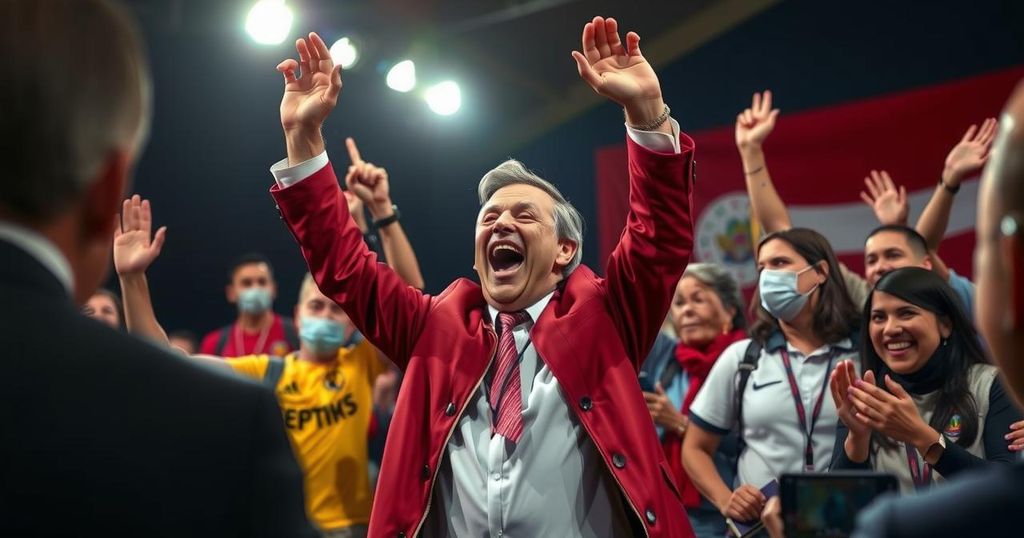World news
ALVARO DELGADO, AP AUSTRALIAN ASSOCIATED PRESS, ARGENTINA, ASIA, BRAZIL, BRITAIN, BROAD FRONT, COALITION GOVERNMENT, COLORADO PARTY, DELGADO, DEMOCRACY, ELECTIONS, FRONT, JAPAN, LUIS LACALLE POU, MEXICO, MONTEVIDEO, NATIONAL PARTY, NORTH AMERICA, OR, ORSI, PHILIPPINES, POLITICS, SOUTH AMERICA, TRADE RELATIONS, URUGUAY, US
Marisol Gonzalez
0 Comments
Yamandu Orsi Secures Victory in Uruguay’s Presidential Election
Yamandu Orsi has won Uruguay’s presidential election with 49.77% of the vote, defeating conservative Alvaro Delgado. Orsi’s victory signifies a moderate political preference in Uruguay, amid global trends of incumbent parties losing voter support due to economic challenges. Both Delgado and President Luis Lacalle Pou congratulated Orsi and offered support for the transition.
Yamandu Orsi, the centre-left candidate from the Broad Front party, has emerged victorious in the recent presidential election in Uruguay, with official results confirming his win as of Sunday. With nearly all votes counted, Orsi garnered 49.77% of the ballots, defeating conservative rival Alvaro Delgado, who received 45.94%. Following the election results, Orsi proclaimed a hopeful vision for the nation, emphasizing the values of freedom, equality, and fraternity. His predecessors from the National Party promptly conceded and extended their congratulations, promising assistance during the transition period.
The election marked the conclusion of a significant year for elections worldwide, showing a trend of incumbents losing voter support amid concerns over economic issues such as inflation, high living costs, and rising crime rates. However, prior to the election, inflation in Uruguay had begun to ease, and both employment and real wages were on the upswing. Orsi, having previously secured 43.9% of the first-round vote in October, reassured voters that he intends to maintain a moderate policy direction in the traditionally stable nation, which has avoided many of the extreme political divides seen in its regional neighbors such as Argentina and Brazil. Although he won decisively, Orsi’s success reflects widespread discontent with ruling parties globally, which have increasingly faced backlash due to economic challenges.
Uruguay has a history of stable governance, characterized by a relatively tension-free political climate compared to other Latin American nations. The recent election involved a moderate contest between Orsi and Delgado, highlighting a preference among voters for centrist policies amidst rising concerns regarding economic stability. The Uruguay election can be seen as part of a broader global trend where incumbent parties struggle with voter discontent over socio-economic issues, including inflation and crime, reflecting a significant shift in the political landscape as the year of historic elections concludes.
Yamandu Orsi’s triumph in the presidential election signifies a noteworthy political development for Uruguay, demonstrating a preference for moderate policies during times of economic challenge. The post-election environment appears promising with both political rivals supporting a smooth transition. As the nation faces economic concerns, Orsi’s approach could shape Uruguay’s future trajectory while aligning with global trends where incumbent parties are losing support due to inflation and rising living costs.
Original Source: www.areanews.com.au




Post Comment